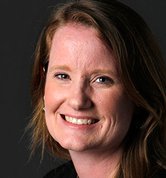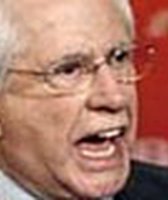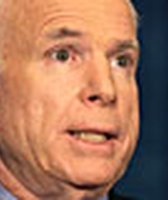Stand up for the facts!
Our only agenda is to publish the truth so you can be an informed participant in democracy.
We need your help.
I would like to contribute
SUMMARY: Rudy Giuliani joined the Iraq Study Group but then never made it to a meeting.
The knock against Rudy Giuliani as a candidate for president is that he doesn't have much foreign policy experience.
So, being asked to join the Iraq Study Group, the panel created in 2006 at the urging of Congress to conduct a bipartisan assessment of the situation in Iraq, seemed to be an opportunity to answer the critics.
"The mayor looks forward to working with the group," Giuliani spokesman Sunny Mindel said in March 2006.
Only, he didn't work with them.
During the next two months, the 10-member panel held two two-day meetings at the Washington, D.C., offices of the United States Institute of Peace.
Giuliani attended neither, according to panel members. From March 15, 2006, to May 24, 2006 — his tenure on the panel — he was busy making 30 paid appearances, which netted him $2.25-million, according to his financial disclosure forms.
This has opened Giuliani to criticism from some of his presidential rivals.
Giuliani's campaign offered no explanation for the missed meetings.
But at a campaign stop in Tampa in November 2007, Giuliani said, "I decided that it would be a mistake to be a part of it because I was considering very seriously running for president . . . and from the time that I decided to join until the time that I decided I shouldn't do it, I became more and more serious about running. And I thought that if I were part of it, it would create a very partisan situation."
Sen. John McCain and Sen. Barack Obama's campaign cite Giuliani's absence from the panel as a deficiency in his qualifications to be president.
"He (Giuliani) has no national security experience that I know of," McCain said Nov. 26, 2007 in an interview with Fox News. "He's never been to Iraq. He was a member of the Iraq Study Group and was either fired or quit from a very important commission that was trying to figure out the way forward in Iraq."
Similar charges come from Bill Burton, spokesman for Obama's campaign.
"While Rudy Giuliani may embrace Hillary Clinton's policy of not talking and saber rattling towards Iran, Barack Obama knows that policy is not working," Burton said in a statement on NBC's "First Read" blog in November 2007. "It's time for tough and direct diplomacy with Iran, not lectures from a mayor who skipped out on the Iraq Study Group to give paid speeches."
Give speeches, he did.
On April 11-12, 2006, the first official meeting of the Iraq Study Group was held in Washington, D.C. Where was Giuliani? On April 12, he was a keynote speaker at the FT Asian Financial Centers Summit in South Korea. His net fee: $160,000.
The second official meeting of the group was May 18-19, 2006. Where was Giuliani? On May 18, he spoke at the Georgia 100 annual awards breakfast in Atlanta. His net: $80,000. Later that day, he attended a $100-a-plate fundraiser for former Christian Coalition leader Ralph Reed, then a candidate for lieutenant governor of Georgia.
James Baker, secretary of state under the first President Bush, was co-chair of the Iraq Study Group, along with former U.S. Rep. Lee Hamilton, D-Ind. Baker declined to comment for this story.
But his co-chair explains how Giuliani left the group.
Hamilton says that after Giuliani told Baker he couldn't attend the second meeting in a row, "(Baker) said, 'I'm going to have to go to another person.' "
Former U.S. Sen. Alan Simpson, R-Wyo., says the same thing happened to him. "I missed a couple myself," Simpson, a panel member, said during a November 2007 interview. "Baker came to me and said, 'You gotta show up if you're on this thing.' So, I rescheduled things in my own life."
On May 31, 2006, the group announced that former U.S. Attorney General Edwin Meese III would take Giuliani's spot on the panel.
At the time, Giuliani said, "My previous time commitments do not permit me the full and active participation that the Iraq Study Group deserves."
In his November visit to Tampa, he provided more context.
"I would be the only member of that committee that's actively engaged in politics, and anything that I subscribed to would be seen as some kind of a partisan political gesture," Giuliani said. "I believe it was the right decision to keep the recommendations of that commission as nonpartisan as possible."
Bipartisan representation was a key goal of the Iraq Study Group, which had five Republican members led by Baker and five Democrats led by Hamilton. The panel met eight times, officially, over the course of 2006, including a six-day trip to Baghdad. Members included former Secretary of State Lawrence S. Eagleburger; Vernon Jordan; former Supreme Court Justice Sandra Day O'Connor; former White House chief of staff Leon Panetta; former Defense Secretary William Perry; and former Virginia governor and U.S. Sen. Charles S. Robb, D-Va.
But at least one member didn't see Giuliani's participation as an issue.
"I think everybody there has a political background of some kind or another, so all of us have been involved in politics," Panetta, a Democrat, said in a November 2007 interview. "The purpose of that was to really look at the issues and try to hopefully make bipartisan recommendations.
"I think it was a great experience to really find out about the issues involved with Iraq, what approaches need to be taken in order to try to resolve that conflict. I think it probably would have helped him rather than hurt him in terms of his race for the presidency."
FACT SHEET: Who has been to Iraq? We surveyed the candidates and 9 of 16 have. Our findings are here.
Our Sources
Public financial disclosure report, "Rudolph W. Giuliani," filed May 14, 2007
Iraq Study Group, Report
Press release, "Edwin Meese Replaces Rudolph Giuliani on Iraq Study Group," U.S. Institute of Peace, May 31, 2006
Event Program, FT Asian Financial Centers Summit, Seoul, South Korea, April 2006
Associated Press article, "Giuliani named to bipartisan panel reviewing U.S. policy in Iraq," March 16, 2006
New York Times article, "In a Southern Foray, Giuliani Helps a Friend but Skirts an Issue," by Patrick Healy, May 19, 2006
Atlanta Journal-Constitution article, "Giuliani endorses Reed for lieutenant governor, 300-plus turn out for fundraiser," by Jim Galloway, May 19, 2006
Atlanta Journal-Constitution article, "Giuliani shares secrets," by Maria Saporta, May 25, 2006
News conference, Rudy Giuliani in Tampa, Nov. 15, 2007
Interview with Lee Hamilton, former U.S. representative from Indiana and co-chair of Iraq Study Group, Nov. 15, 2007
Interview with Alan Simpson, former U.S. senator from Wyoming and Iraq Study Group panel member, Nov. 15, 2007
Interview with Leon Panetta, former White House chief of staff and Iraq Study Group panel member, Nov. 16, 2007








































